Discover our process
Three pillars of our process: the development of agricultural technologies, the purchase of high-quality seeds and the use of modern equipment.
This is how we create delicious, healthy and environmentally friendly products, which we are proud to delight our customers with.
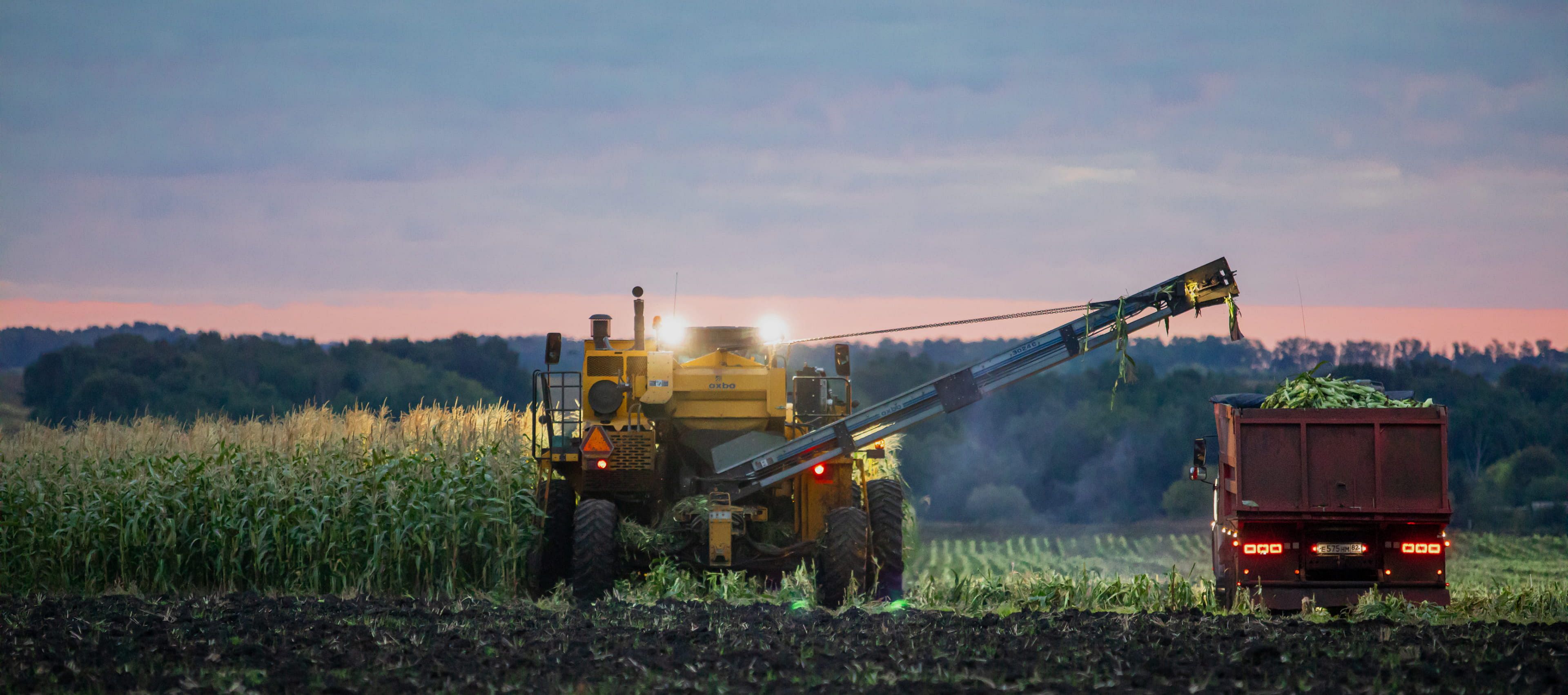
We love our work and openly talk about it

Production stages
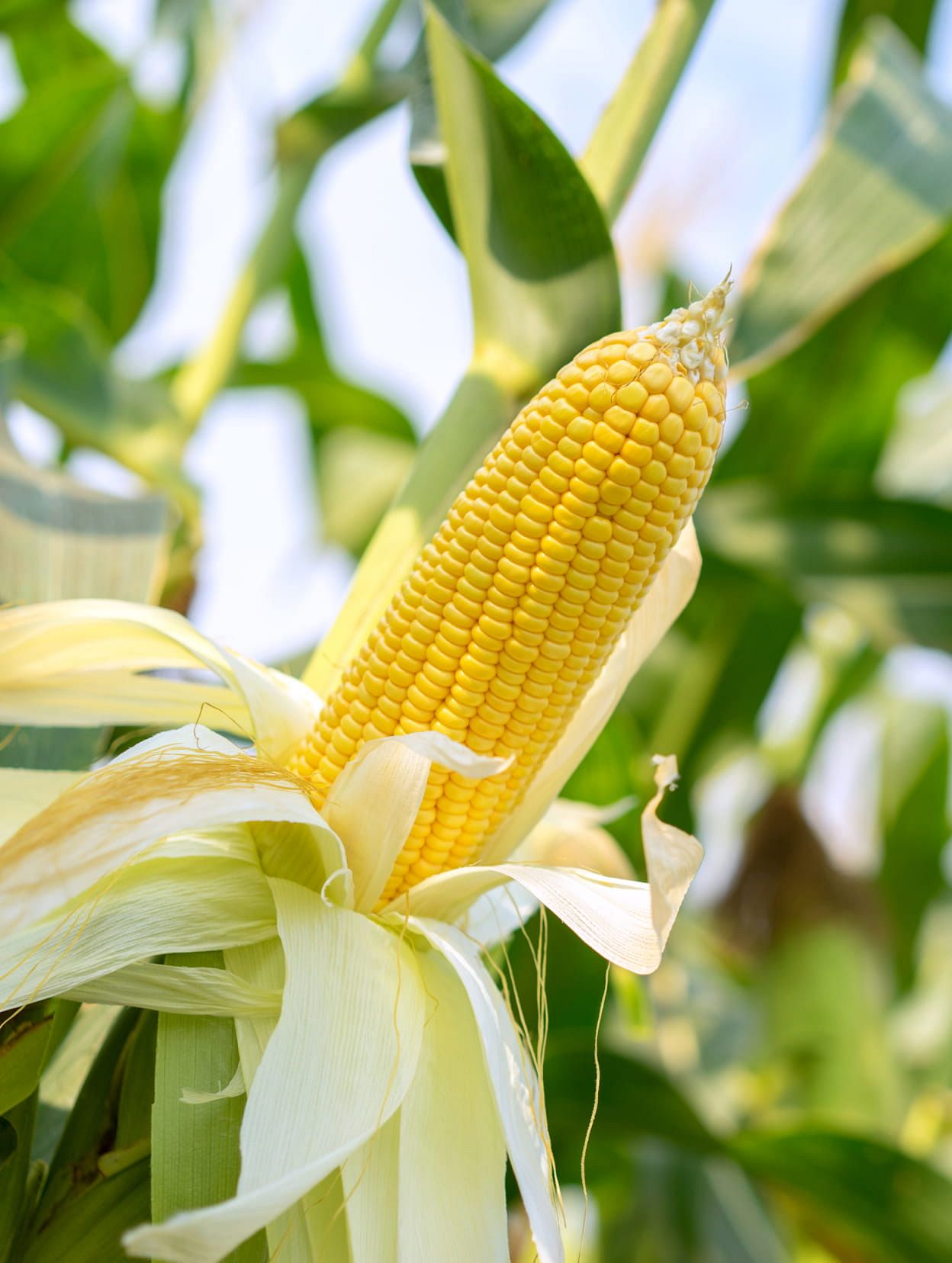
01/03
Corn
We grow corn, which is excellent not only for preservation, but also for fresh consumption. Its kernels have a rich nutritional value comparable to beans. Producing high quality of BCP corn, we are gaining more and more loyal customers every day.
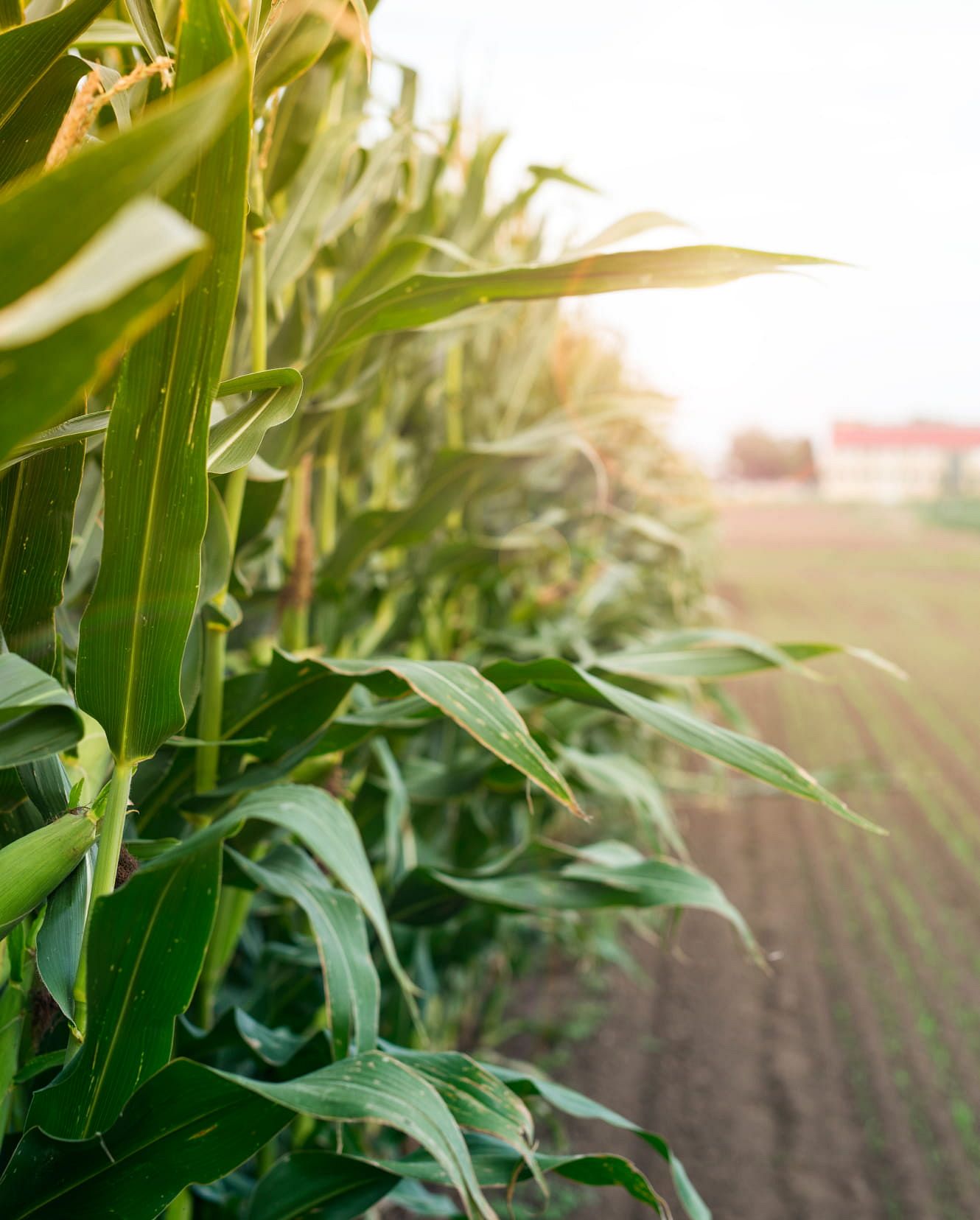
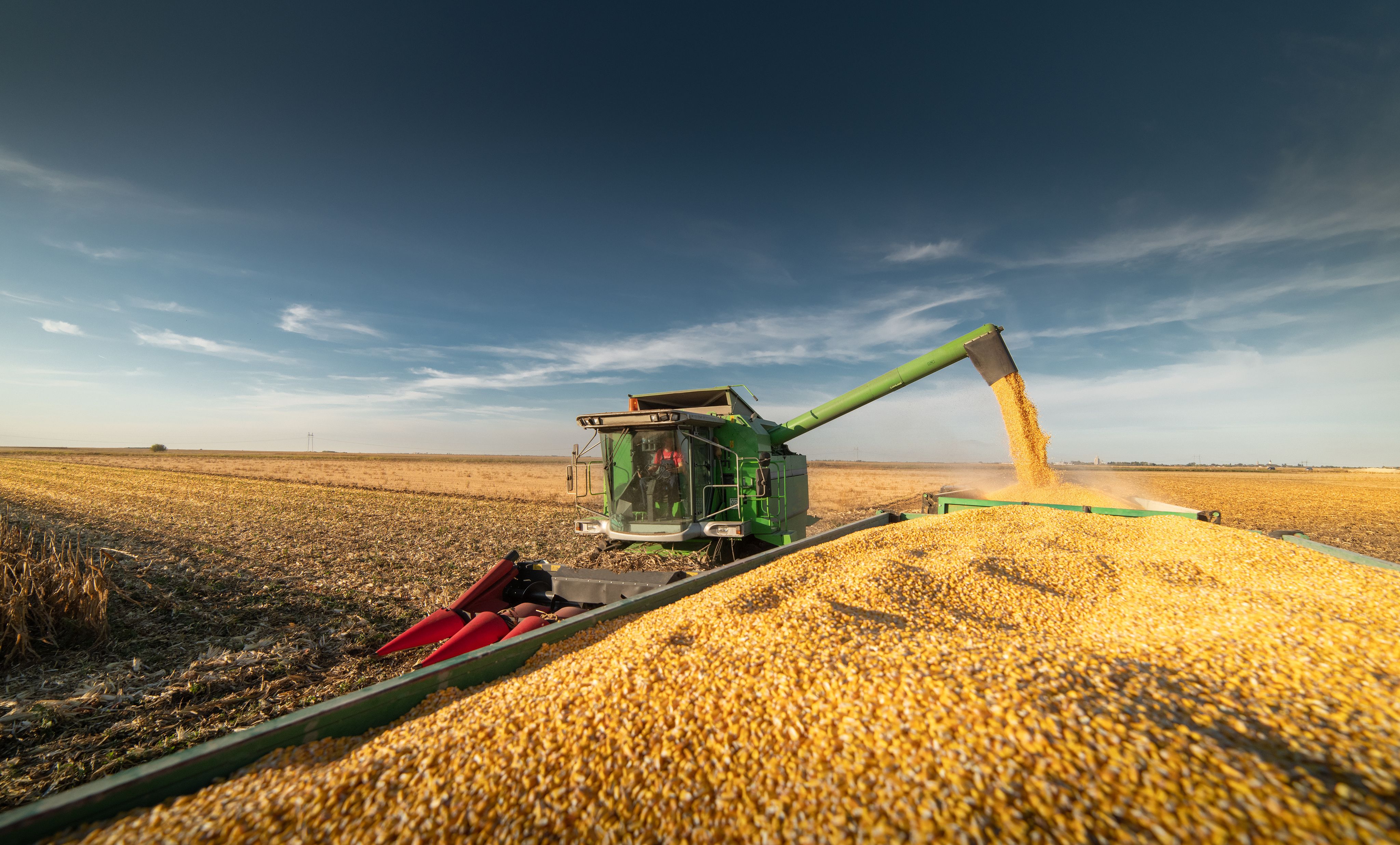

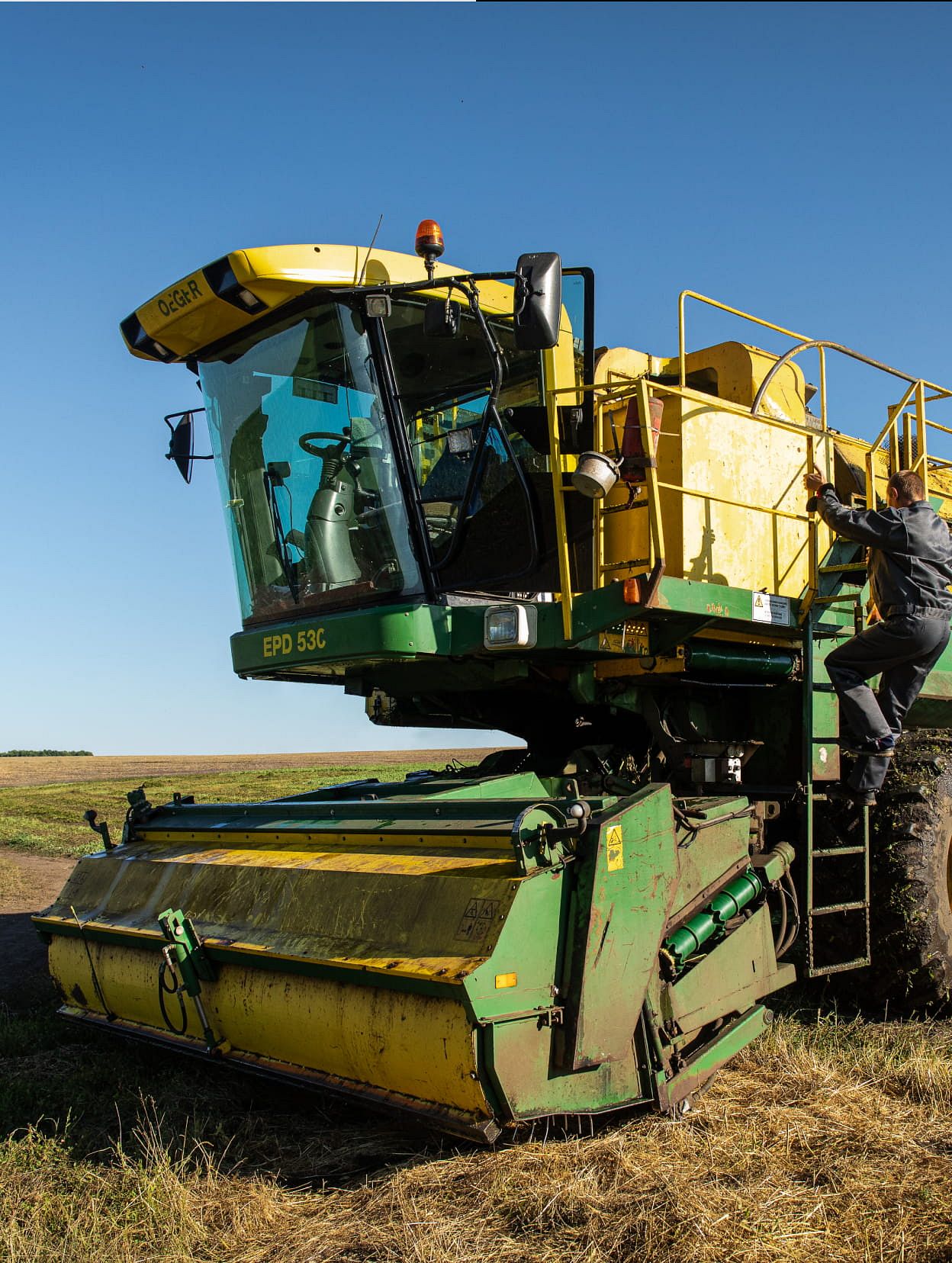
02/03
Peas
Selected varieties, careful cultivation and a well-thought-out technological production process allow us to create delicious canned peas for the whole family
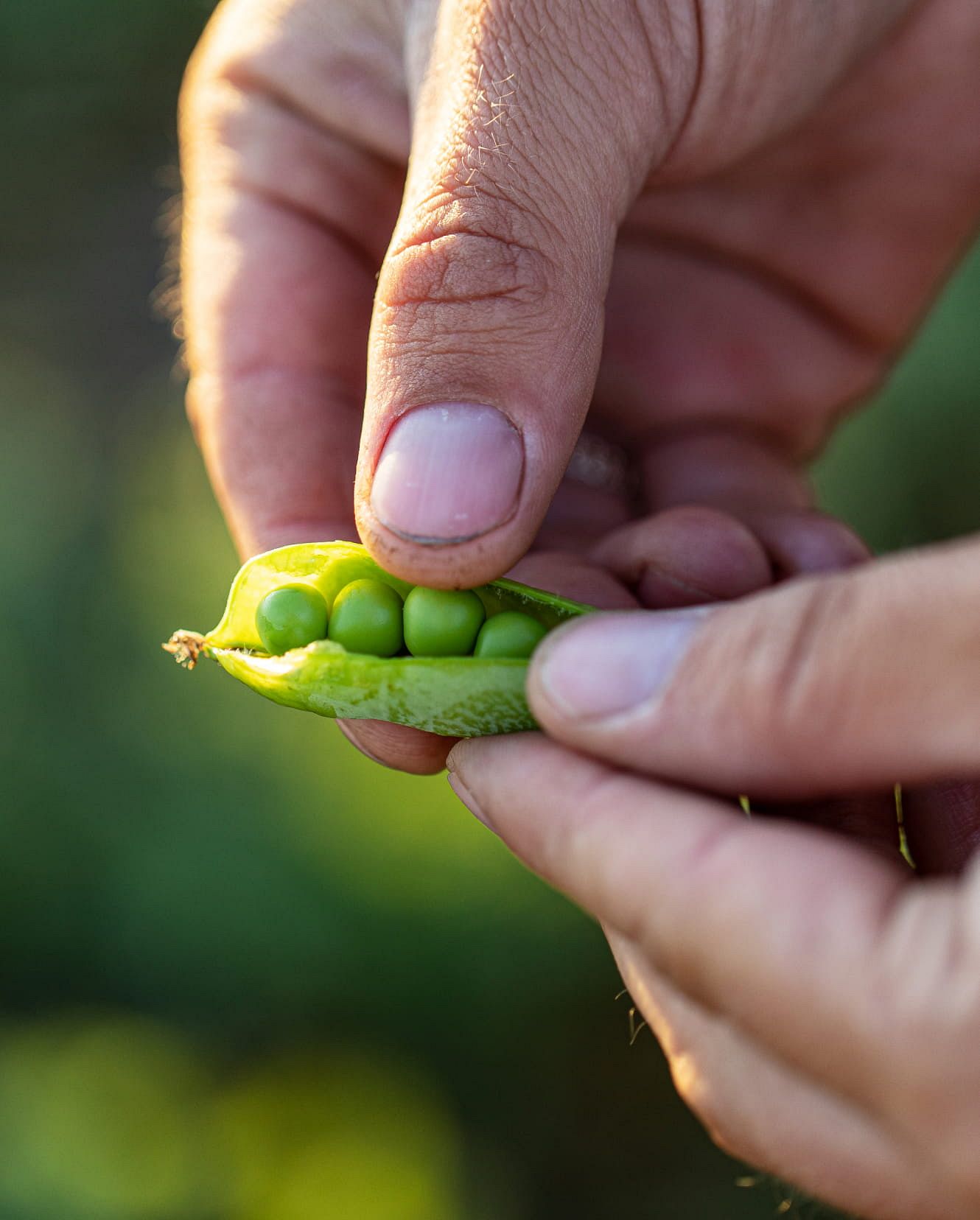
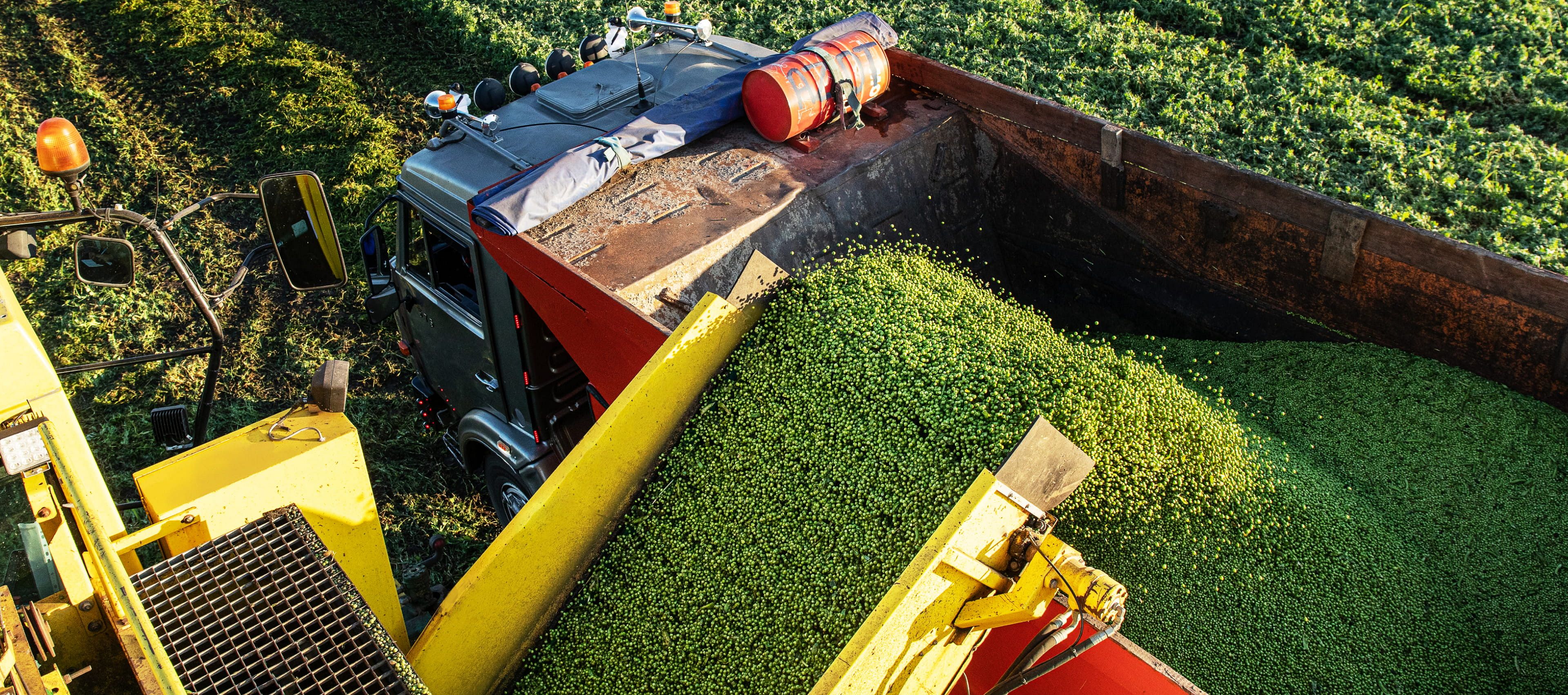

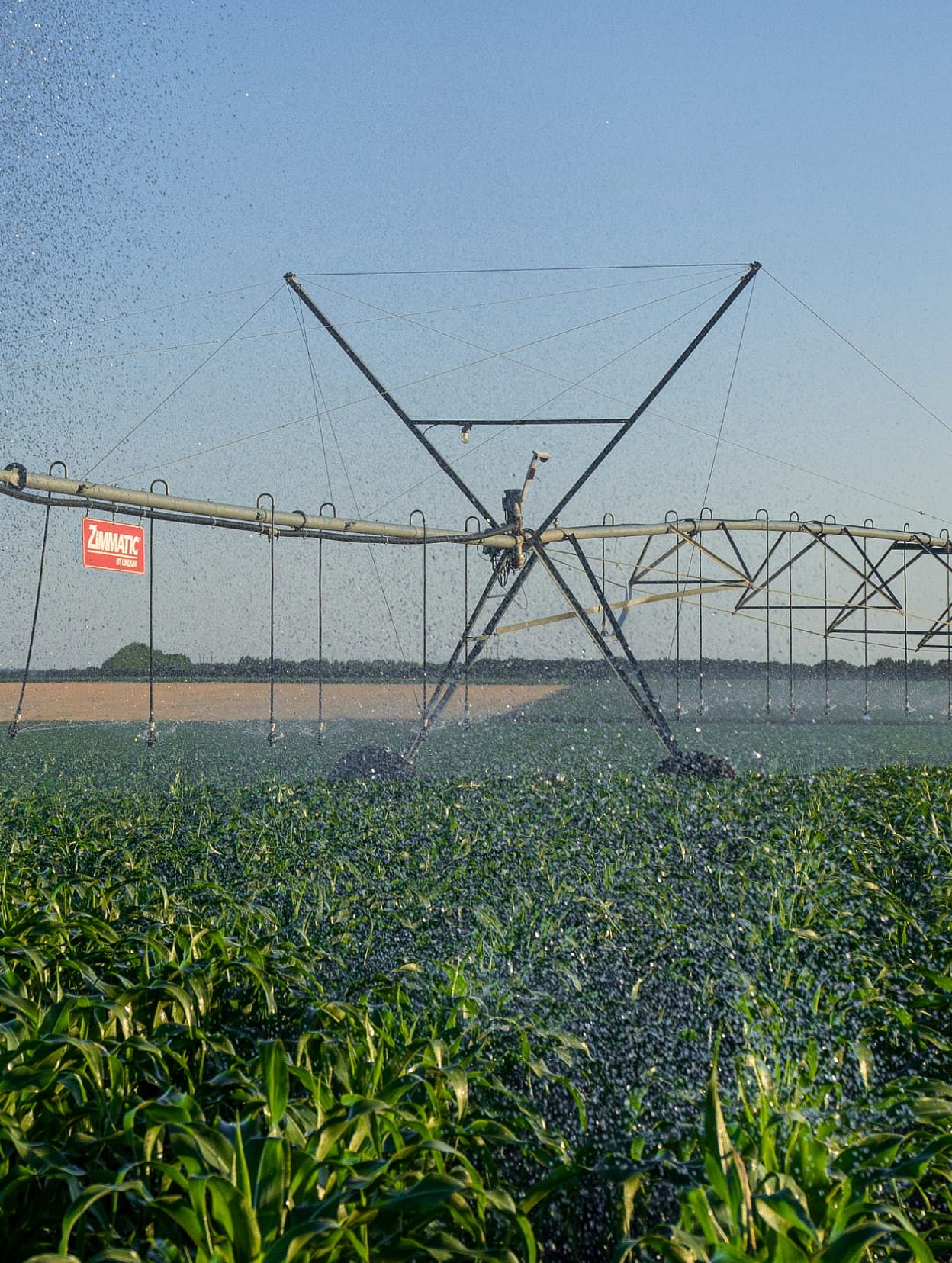
03/03
Beans
We keep all the benefits of beans and pass it on with love in each of our cans. All raw materials, and all finished products are tested in our own and other independent laboratories to confirm the declared quality of the product.
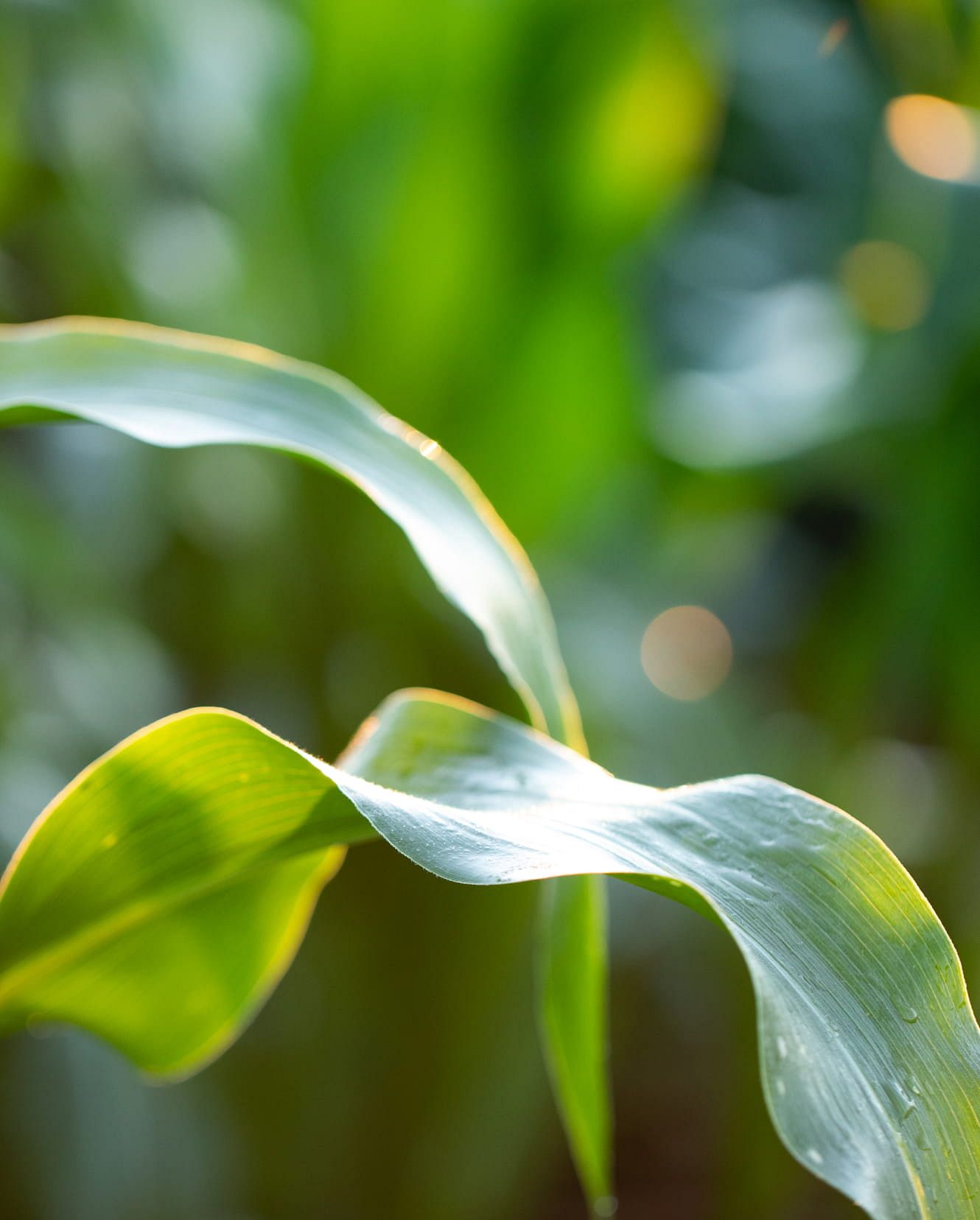
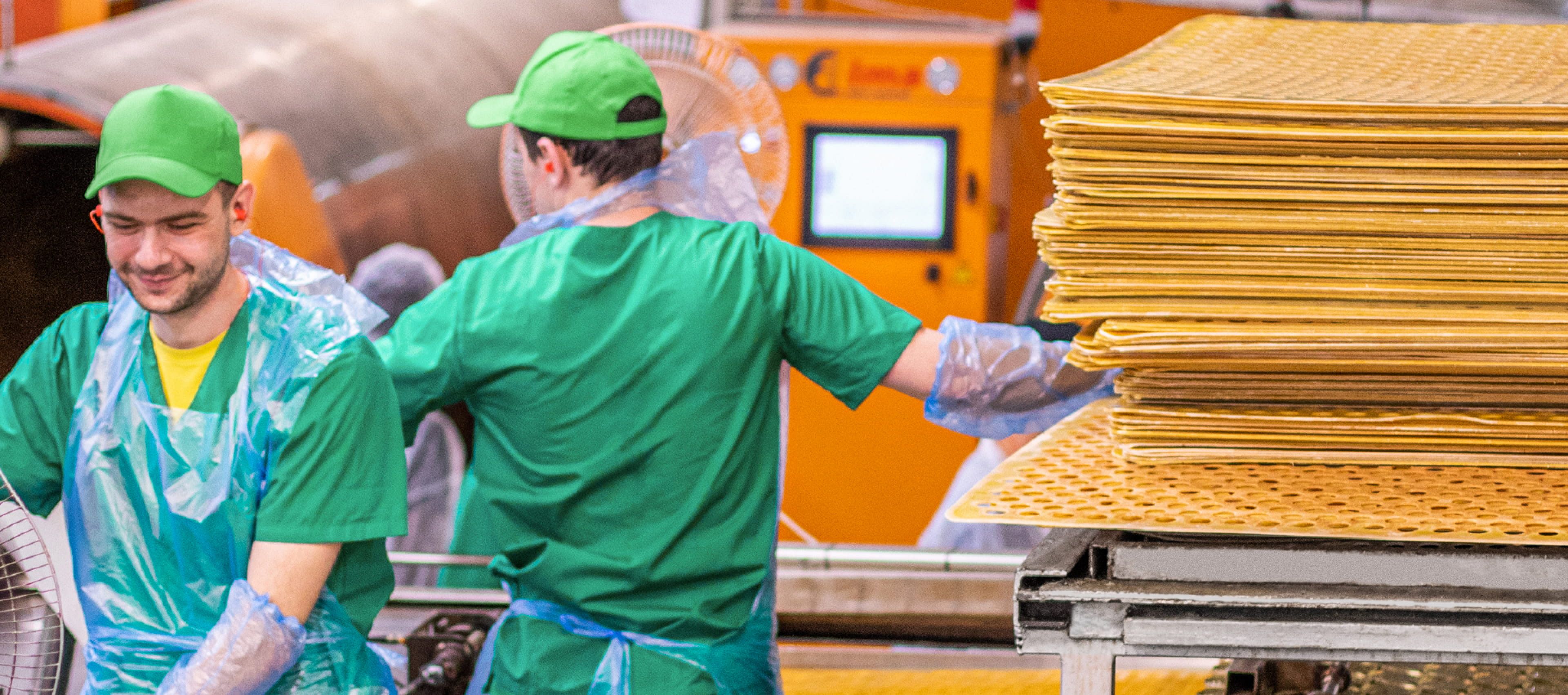
Corn
-
Purchase of seeds
It all starts with seeds
Leading seed companies such as Swiss Syngenta seeds, American Crookham company supply us with special varieties of corn, taking into account the conditions of our area
-
Land preparation
Even in autumn, long before the first crops, we plow the land and apply the necessary fertilizers. Thanks to this, the soil overwinters properly and gives a high yield
-
Pre-sowing treatment
During spring we cultivate the land with heavy harrows
This helps to create favorable conditions for the soil: close the accumulated moisture of thawed snow, destroy weeds, level the surface and create a loosened layer
-
Sowing
When the soil at the seed-planting depth warms up to at least +10 °C, we start sowing corn. This is the most suitable sowing time
The Vaderstad and Monosem seeders, as well as our agriculture experts, are responsible for sowing
-
Harrowing and cultivation of crops
Harrowing and cultivation change the structure of the surface layer of the soil and provide the best conditions for the intake of air and moisture to the root system of plants
This is one of the key conditions for obtaining a high yield
-
Watering and irrigation
Thanks to our own ponds and central-pivot irrigation systems Lindsey and Kuban we are able to maintain optimal soil moisture levels
by regularly saturating the soil - from a shoot to a fruit
-
Harvesting
When corn is in the end of the first stage of ripening, we harvest it with Oxbo and Byron high-tech combines
-
Hulling and selection
After harvesting, we send the corn to a modern hulling line
The calibrator selects mature and formed cobs without mechanical damage and sends them to automatic cutters for cutting grains from the cob
The cut grain is cleaned from the remains of the cob on the vibrating table. A flotation washer and an air selector removes plant impurities and damaged grains
Immediately after the blancher and the water separator we control the raw materials on the inspection conveyor belt and additionally clean them with an air selector before filling the can
-
Filling
The filling liquid is cleaned through a filter and a magnetic catcher before filling the can
This eliminates the risk of foreign impurities entering the product
-
Seaming and labeling
Selected grains and filling are sent to a container made of high-quality enameled tin, which preserves the quality of peas as much as possible
To do this, we use filling lines and Marodan autoclaves together with a vacuum Zacmi filling line
Italian high-speed seaming machines roll up 600 cans. After rolling, we evaluate the quality of the seams using a special device from the Swedish company called METOP
Next, the cans are fed into an iron basket in cassettes of 1400 pieces to be sent for sterilization,
four lines label up to 650,000 cans per day
Thanks to such capacities, our customers receive products on time even during peaks of canned vegetables demand
Peas
-
Purchase of seeds
It all starts with seeds
German Van Waveren, Dutch Seminis and other leading producers supply us with special varieties of peas, taking the conditions of our area into account
-
Land preparation
Even in autumn, long before the first crops, we plow the land and apply the necessary fertilizers. Thanks to this, the soil overwinters properly and gives a high yield
-
Pre-sowing treatment
During spring we cultivate the land with heavy harrows
This helps to create favorable conditions for the soil: close the accumulated moisture of thawed snow, destroy weeds, level the surface and create a loosened layer
-
Sowing
With the help of Vaderstad and Monosem seeders, we sow peas simultaneously with early spring wheats, as it is moisture-loving and cold-resistant
With such sowing, legumes form the root and the shoot systems faster, and are less damaged by powdery mildew and aphids
-
Soil re-consolidation
After sowing, we till the soil with ring-spur rollers, which improves the contact of seeds with the soil and raises moisture from the lower layers to the seeds
-
Seed-stage harrowing
4-5 days after sowing, we carry out seed-stage harrowing. At this time, the seedlings of weeds are in the most vulnerable phase, This allows us to destroy up to 60-80% of annual weeds
-
Watering and irrigation
Thanks to our own ponds and central-pivot irrigation systems Lindsey and Kuban we are able to maintain optimal soil moisture levels
by regularly saturating the soil - from a shoot to a fruit
-
Harvesting
During harvesting, agronomists take samples of peas and conduct research to make sure that the peak of maturity has been reached
Next, we remove the peas with Ploeger harvesters
-
Hulling and selection
Pea processing takes place in several stages: dry cleaning drum, wet cleaning drum and flotation washing
Impurities and damaged grains float up to the top of the flotation bath and go to waste. And a good dense grain is transfered by a water stream to an air selector. There, air flows separate the remains of impurities and broken grains
-
Filling
The filling liquid is cleaned through a filter and a magnetic catcher before filling the can
This eliminates the risk of foreign impurities entering the product
-
Seaming and labeling
Selected grains and filling are sent to containers made of high-quality enameled tin, which preserves the quality of corn as much as possible
To do this, we use filling lines and Marrodan autoclaves, together with a Zacmi vacuum filling line.
Beans
-
Input control of raw materials
Our production laboratory evaluates the incoming raw materials for the presence of mineral impurities, determines moisture and contamination of grains
After that, raw materials are submitted for additional verification by an independent laboratory accredited by the ROSSELKHOZNADZOR
-
Primary hulling
If necessary, we additionally clean the tested raw materials from impurities on selectors and photoseparators, calibrate them and sort by bean type
-
Blanching
Raw materials purified at a temperature of 20 C are then soaked for 6 hours in running cold water
After that, they are restored, rinsed and blanched at 100C to preserve the vegetable protein inside the grain
-
Cooling and secondary hulling
After blanching, we cool the raw material again to 20C and additionally clean it with an air selector
This allows us to weed out the deformed beans and the remaining impurities
-
Filling
The purified raw materials are filled into a metal lacquered can with an internal enamel coating
Such a container allows us to keep the product in its original form for 36 months
-
Preparation of filling
Our beans filing is made using only natural additives
Before entering the can, it passes through a cleaning filter and a magnetic trap. This allows us to clean the fill from small particles of foreign impurities
-
Seaming
Italian high-speed seaming machines roll up 600 cans per hour. After seaming, we evaluate the quality of the seams using a special device from the Swedish company called METOP
Next, the cans are fed into an iron basket of 1400 pieces to be sent for sterilization
-
Sterilization
The cans are heated to 120C and sterilized for 50 minutes in Spanish periodic action autoclaves
We monitor the sterilization process online. After that, canned food is sent for thermostating
-
Temperature control
The process of thermostating in the warehouse lasts 11 days at a temperature of 0 to 25C and a relative humidity of no more than 75%
During this time we conduct physico-chemical and microbiological analyses of canned food first in our laboratory, and then in an independent one
-
Labeling
After thermostating, we send canned food for labeling and marking, where we put the production date and batch number
Then the products get to the finished product warehouse
-
Finished goods warehouse
In order to preserve what we have grown with our own hands, we maintain the temperature in the warehouse at 20 - 25C with a relative humidity of no more than 75%. We ship the product according to the FIFO - «first in first out» - principle
Before sending the product, we check the driver's medical book, the sanitary passport the temperature regime of the car
We control all production processes from the field to the can
We help companies launch new brands and win peoples' hearts
We are ready to provide stable supplies of canned corn, peas, beans and other vegetables under your trademark.
We guarantee consistently high quality of products and packaging, as well as favorable prices for the finished product and convenient delivery conditions.














